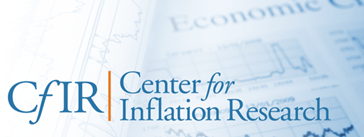
Person
Bernardo Candia
Research Economist
Areas of Expertise
macroeconomics, international economics, economic history
Department
Research
Education
- BA,
- Business and Economics,
- Universidad de Chile,
- 2015
- MA,
- Economics,
- Universidad de Chile,
- 2018
- PhD,
- Economics,
- University of California, Berkeley,
- 2025
Bernardo Candia is a research economist in the Research Department at the Federal Reserve Bank of Cleveland. His primary research interests are in macroeconomics, international economics, and economic history.
Dr. Candia received his PhD in economics from the University of California, Berkeley. He holds a BA in business and economics and MA in economics from Universidad de Chile.
Featured publications
- “Export-Led Decay: The Trade Channel in the Gold Standard Era” With M. Pedemonte, Journal of European Economic Association 23.3(2025): 1173-1201.
- “Tell Me Something I Don’t Already Know: Learning in Low and High-Inflation Settings” With H. Afrouzi, O.Coibion, S. Frache, D. Georgarakos, G. Kenny, S. Kumar, R. Lluberas, B. Meyer, J. Ponce, T. Ropele, and M. Weber, Econometrica 93(2025): 229-264.
- “The Inflation Expectations of U.S. Firms: Evidence from a new survey” With O. Coibion and Y. Gorodnichenko, Journal of Monetary Economics 145(2024): 103549.
- “Communication and the Belief of Economic Agents” With O.Coibion, and Y. Gorodnichenko, in Navigating the Decade Ahead: Implications for Monetary Policy, Economic Policy Symposium (Jackson Hole, WY) Proceedings, Federal Reserve Bank of Kansas City, 2020.
- “Export-Led Decay: The Trade Channel in the Gold Standard Era” With M. Pedemonte, Journal of European Economic Association 23.3(2025): 1173-1201.
- “Tell Me Something I Don’t Already Know: Learning in Low and High-Inflation Settings” With H. Afrouzi, O.Coibion, S. Frache, D. Georgarakos, G. Kenny, S. Kumar, R. Lluberas, B. Meyer, J. Ponce, T. Ropele, and M. Weber, Econometrica 93(2025): 229-264.
- “The Inflation Expectations of U.S. Firms: Evidence from a new survey” With O. Coibion and Y. Gorodnichenko, Journal of Monetary Economics 145(2024): 103549.
- “Perceived and Expected Rates of Inflation of US Firms” With O. Coibion, Y. Gorodnichenko, and Michael Weber, AEA Papers and Proceedings 113(2023): 52-55.
- “The Macroeconomic Expectations of Firms” With O. Coibion, and Y. Gorodnichenko, Handbook of Economic Expectations.
- “Taxes, Transfers and Income Distribution in Chile: Incorporating Undistributed Profits” With E. Engel, Commitment to Equity Handbook Volume 2.
- “Communication and the Belief of Economic Agents” With O.Coibion, and Y. Gorodnichenko, in Navigating the Decade Ahead: Implications for Monetary Policy, Economic Policy Symposium (Jackson Hole, WY) Proceedings, Federal Reserve Bank of Kansas City, 2020.
- Share
Center for Inflation Research
The Cleveland Fed’s Center for Inflation Research is the hub for “all things inflation,” providing a combination of research, analyses and data, background and commentary, and an annual conference series dedicated to inflation.

